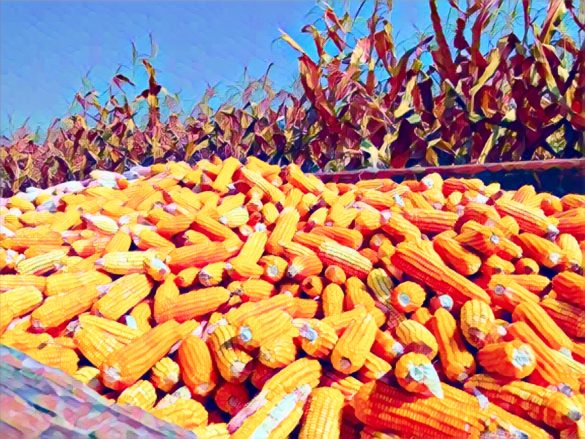Zimbabwe is grappling with a severe hunger crisis after El Niño, a weather phenomenon linked to rising ocean temperatures, caused the worst drought in four decades. The drought devastated crops, leaving millions facing food insecurity. In a desperate bid to avert a full-blown famine, Zimbabwe is turning to South America’s agricultural powerhouse, Brazil, to secure a critical supply of maize, the country’s staple food.
Grain Millers Seek Relief from Brazil
The Grain Millers Association of Zimbabwe (GMAZ), a key industry body, dispatched a 20-member delegation to Sao Paulo, Brazil, to negotiate the purchase of 400,000 metric tonnes of yellow and white maize. GMAZ chairperson Tafadzwa Musarara explained that the imported maize will supplement existing stocks from local farmers and ongoing imports from neighboring South Africa, which has been less affected by the drought.
The urgency of the situation cannot be overstated. President Emmerson Mnangagwa declared the drought a national disaster in May 2024, highlighting a grain deficit of 680,000 metric tonnes. This shortfall, coupled with the El Niño-induced crop failures, has left an estimated 2.7 million Zimbabweans in dire need of food assistance. The situation is likely to worsen as the lean season, a period between harvests when food stocks dwindle, approaches.
Hope on the Horizon: Brazil Steps Up
Zimbabwe’s predicament comes at a time when Brazil is anticipating a bountiful maize harvest of 125 million tonnes. This fortunate timing presents an opportunity for Zimbabwe to bridge the gap between domestic production and consumption. Negotiations between GMAZ and Brazilian suppliers aim to secure a year-long supply of maize, with deliveries expected to begin in late July 2024.
While the Brazilian maize imports offer a temporary reprieve, experts warn that a long-term solution is needed. The United Nations (UN) and the United Nations Children’s Fund (UNICEF) have both issued warnings about the potential scale of the hunger crisis in Zimbabwe. The UN estimates that millions more Zimbabweans could be at risk of hunger, and UNICEF has launched an emergency appeal for $85 million to fund its response programs.
Building Resilience for the Future
Beyond immediate food assistance, Zimbabwe requires support in building resilience against future climate shocks. Investments in drought-resistant crops, improved irrigation systems, and early warning mechanisms are crucial to safeguard the country’s food security in the long term. International cooperation, including technical assistance and knowledge sharing, can play a vital role in this endeavor.
The Zimbabwean government has also taken steps to address the crisis. They have declared maize a controlled commodity, meaning they will regulate its pricing and distribution to ensure affordability. Additionally, they are implementing social safety net programs to provide food assistance to the most vulnerable populations.
Source: New Zimbabwe


